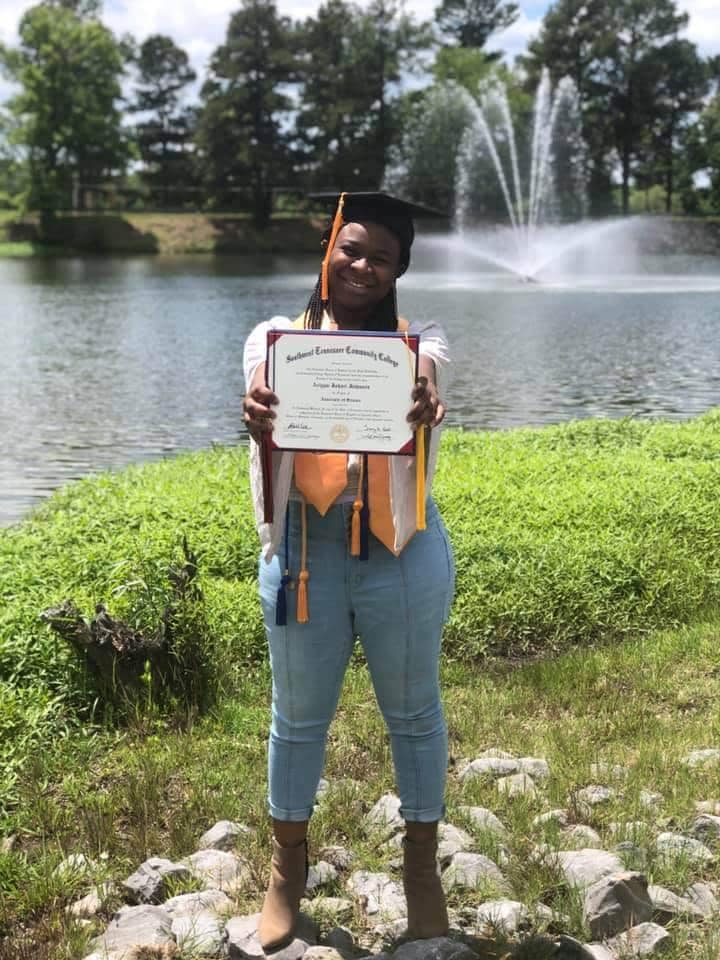By: Ariyan Johnson
I thought I was Black. That was until American society told me otherwise. People, including friends and family, would say things to me like, “Are you sure you’re Black?” or “You act white.” I couldn’t understand what they meant. It was kind of hurtful to hear those things. I didn’t know there was a certain way I was supposed to act or certain things I was supposed to like because my skin read Black.
“You talk white.” It took a couple of years for me to realize how insulting this statement was and is. My mother told me a story about her and me when I was younger than a year old. I was with my mother at Kroger, and she was asking me what food I wanted. She wasn’t using the baby-talk you would expect to hear. This woman, who was listening from the next aisle, came over to my mother and said something along the lines of, “I had to come see who you were talking to. I can’t believe you’re talking to a baby. I thought you were talking to someone a lot older.” My mother never understood why she should “goo goo gah gah” the crap out of us – my siblings and me – when people don’t speak that way. How can you expect a baby to learn how to speak if you don’t speak properly to them?
I started talking very early on. It could have been because of how my mother spoke to me, plus the fact that she read to me very often. I started reading early on as well. This created a foundation for how I speak now. As I got older, my parents really drilled into us “perfect grammar and pronunciation.” Excellent English was essential, especially considering how much my mother loves English. I spent most of my early life in southern Georgia, but later moved back to Memphis, where my family lives. We were away from them for so long that when I got back, I felt like an outsider. I had to transition from semi-diverse schools to predominantly Black schools. There were students and some of my cousins who basically told me I “talked” white. What does that mean? “You just do.” Was it because I pronounced my words correctly and enunciated each sound? I learned later that I “sound educated.” This would mean that being white is equated to being educated, and being Black is equated to being ignorant (not stupid, just lacking knowledge, for the special few who will be offended). Where did this idea come from that Black people can’t be educated, and when did other Black people buy into it?
I was a reader. (I should probably get back into it outside of school.) Sometimes, it was a weird feeling sitting in my classes, remember, predominantly Black schools, reading different books just because I wanted to, for fun. I didn’t really see other girls that looked like me do that. To be fair, outside of reading The Babysitter’s Club and A to Z Mysterious, at one point, I was reading books like Killing Mr. Griffin by Lois Duncan and Insomnia by Stephen King. My nose was constantly in a book, and I didn’t really look up from it. The book was more interesting. It was just weird to some of my peers that I enjoyed reading as much as I did.
It wasn’t just my words and reading choices; it was my relationship with pop culture. My introduction to music also came very early in life. My mother loved music, still does, and used to play it all the time. I fell in love with music well before I had access to music outside of what my mother had at home. When I finally started diving into the world of music independently, I didn’t gravitate towards what I was expected to by others. When I was about thirteen-ish, I was sitting in the car with my cousins, listening to music I had never heard before. I knew it was trap music, and I also knew I didn’t like it. But when I was with them, I just had to blend in, so I started bobbing my head to the beat. I got called out for clearly not knowing it, which was followed by laughter. I laughed with them despite the fact I felt odd, like a weirdo. I was a huge Belieber at this time, which didn’t help. (It was an embarrassingly long phase. Well, it should be embarrassing. I own it.) In general, the music I liked that contradicted my blackness was pop, country, random indie songs, some emo, and later in my teens, K-pop. I remember passionately telling my boyfriend at the time about some K-pop group that I liked, and he said, “That is so weird. Why do you like that? No one else likes that stuff.” I gave up, and we changed the conversation.
The Black Card. I have been under constant investigation, and I think the authorities have been trying to confiscate mine for years. What is this idea that you have to certified to be Black? I will be honest. I have been guilty of telling someone I need their Black card. I’ve mainly only used it if someone who is Black hasn’t seen a “classic” Black movie. I should be the last person to take someone’s card. I haven’t seen most of them. I know the feeling of being jokingly ridiculed for not seeing such movies, and yet I have subjected some other people I know to the same treatment (apologies to my roommate). I’m working on it. The Black card can be threatened to be taken away for anything someone does that is not considered “a Black thing” or if you have not done something that you should do. It always stings to hear, “I’mma need yo Black card.” I feel like I’ve disgraced the culture. It seems extreme, but I feel that there is so much pressure on Black people by Black people to be Black, whatever that means.
I just know that trying to make every person happy by doing what I’m “supposed” to do because of my skin color is stressful and exhausting. I’ll just never be Black enough.

Ariyan Johnson is a young author who shares her life experiences and imagination with others. She was born in Memphis, TN, but currently lives in Baltimore, MD, for school. She received her Associate of Science in Psychology at Southwest Tennessee Community College. Upon graduation, she transferred to The University of Baltimore to earn a Bachelor of Fine Art in Psychology. After one semester, she realized that she was on the wrong path academically and decided to change her major to English with a specialization in creative writing. She has been writing since the age of four. She enjoys writing poems and short stories. However, earlier this year, she decided to start sharing her thoughts and feelings about her life, so she started a Blog. Her blog posts give her the space to be vulnerable and express herself without criticism. When she is not in school or at work, she is either crocheting, a hobby she picked up at 14, or updating her blog with new stories to share.

This was a great read. I can definitely relate to your struggle. I think we ought to teach our children that being black doesn’t mean you have to like certain things, or act a certain way. We are not a monolith, and as hard as we fight against stereotypes, we need to make sure we aren’t forcing those stereotypes on each other. Congratulations! Great article!